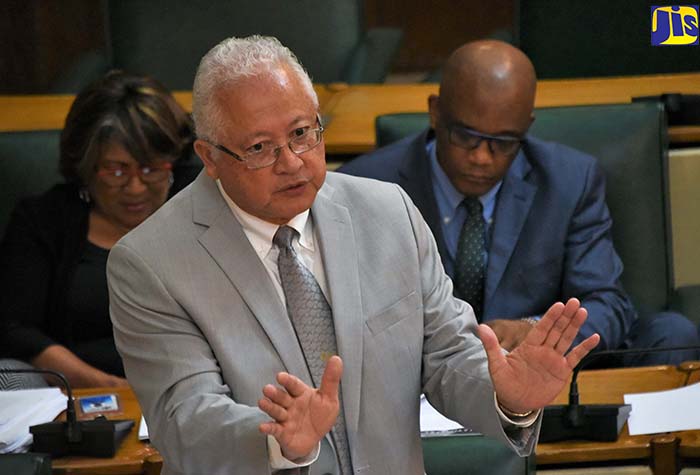House Approves Amendments to Trafficking in Persons Act
By: , February 2, 2018The Key Point:
The Facts
- Minister of Justice, Hon. Delroy Chuck, who piloted the Trafficking in Persons (Prevention, Suppression and Punishment) (Amendment) Act 2018 through the House, referenced the case of Regina v. Hermalinda Parker et al, which was heard before the Home Circuit Court.
- The Minister said the ODPP indicated that the irregularity is a symptom of issues faced in the prosecution of complex cases involving criminal networks, gangs, and trafficking cases that expose jurors and witnesses to high risk of intimidation and influence.
The Full Story
The House of Representatives, on Tuesday (January 30), passed amendments to the Trafficking in Persons Act to enable a judge to try trafficking offences without a jury.
The amendments were made following reports from the Office of the Director of Public Prosecutions (ODPP) that a number of irregularities were discovered with trials for Trafficking in Persons (TIP) offences.
Minister of Justice, Hon. Delroy Chuck, who piloted the Trafficking in Persons (Prevention, Suppression and Punishment) (Amendment) Act 2018 through the House, referenced the case of Regina v. Hermalinda Parker et al, which was heard before the Home Circuit Court.
At the end of that trial, the jury returned with a unanimous “not guilty” verdict. It was later revealed that, in fact, three jurors voted guilty and the other three not guilty. A retrial was ordered.
The Minister said the ODPP indicated that the irregularity is a symptom of issues faced in the prosecution of complex cases involving criminal networks, gangs, and trafficking cases that expose jurors and witnesses to high risk of intimidation and influence.
As a result, the ODPP recommended that such matters should be tried before a judge alone in the circuit court.
Additionally, a section of the Bill was amended to empower a judge to order that restitution awarded may be enforced by the victim or by the prosecution on the victim’s behalf, similar to a judgement in a civil matter.
The amended Act further makes provision to empower the Minister to make regulations to better carry out the restitution orders.
The House also amended the Child Care and Protection Act to allow for an increase in the penalty from 10 years to 20 years for the sale or trafficking of children.
This will bring the Child Care and Protection Act in line with the penalty under the TIP Act, which was increased when the Act was amended in 2013.
The TIP Act was enacted in 2007 to prescribe measures to prevent and combat trafficking in persons.
The Act implemented the protocol to prevent, suppress and punish trafficking in persons, especially women and children, supplementing the United Nations Convention against Transnational Organized Crime.


